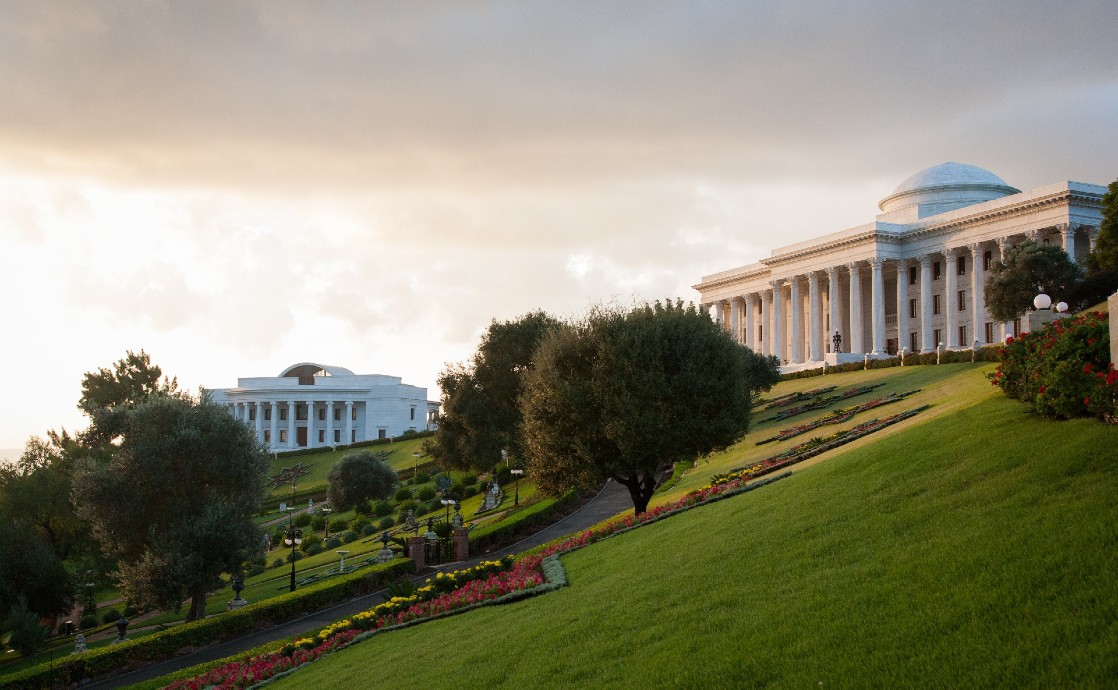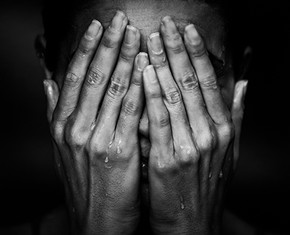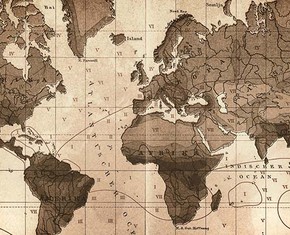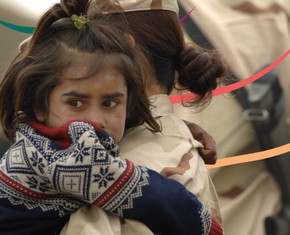The views expressed in our content reflect individual perspectives and do not represent the authoritative views of the Baha'i Faith.
The Baha’i Faith has no clergy, president, or dictator – instead, it operates democratically, electing each of its leadership bodies with universal suffrage and the full participation of every adult Baha’i.
For more than a century, this functioning global democracy – the world’s first – has clearly demonstrated the possibility for a united humanity to effectively and freely govern itself.
RELATED: One of a Kind: A Democratic Global Governing Council
The Baha’i teachings repeatedly praise the value of democracy, as illustrated by this excerpt from a speech given by Abdu’l-Baha in Brooklyn in 1912:
Consider what a vast difference exists between modern democracy and the old forms of despotism. Under an autocratic government the opinions of men are not free, and development is stifled, whereas in democracy, because thought and speech are not restricted, the greatest progress is witnessed. It is likewise true in the world of religion. When freedom of conscience, liberty of thought and right of speech prevail – that is to say, when every man according to his own idealization may give expression to his beliefs – development and growth are inevitable.
Unique among religions, the new Baha’i governing system has been described as the world’s only “pure democracy” – but is it? In many respects, the answer is yes, but the Baha’i model does differ in one important way – more on that in a minute.
The Baha’i system, unlike any other on Earth, utilizes a purely voter-driven, three-tiered structure to elect its local, national, and international leadership bodies.
In that Baha’i structure, revealed by Baha’u’llah, the prophet and founder of the Baha’i Faith, no individual person wields power. In that structure, which functions without partisan divides, political parties, or factions, no campaigns are conducted and no nominations occur. Instead, Baha’is simply come together, consult, and prayerfully reflect – and then confidentially vote, as the Baha’i teachings recommend, for those who they each believe “… can best combine the necessary qualities of unquestioned loyalty, of selfless devotion, of a well-trained mind, of recognized ability and mature experience.”
Here’s how it works: in the fall, Baha’is everywhere gather to choose delegates from the areas where they live. During the following spring, Baha’is elect their local administrative bodies – and in that same period, the delegates they elected in the fall serve as electors of the national Baha’i administrative bodies in each country. These local and national Baha’i elections take place once every year, which offers Baha’is the chance to either re-elect or change their administrators annually.
So rather than government by clergy or by any individual’s decree, Baha’i communities everywhere govern themselves with democratically-elected consultative bodies of nine people called Local and National Spiritual Assemblies.
RELATED: Civilization: Can Human Society Evolve, or Are We Stuck Here?
At the global level, the members of the international Baha’i governing body – The Universal House of Justice, elected once every five years by the world’s National Spiritual Assembly members serving as delegates – are also chosen without slates, nominations, or campaigning through confidential balloting and plurality vote.
Baha’i elections happen in a rarified spiritual atmosphere, without debates, electioneering, nominations, caucuses, canvassing, ad campaigns, or any of the trappings of traditional partisan politics. Instead, anyone in the community could potentially be elected to serve. Each person is chosen based solely on the collective conscience of the voters, who vote for those they each believe are best qualified to represent them. That process exemplifies the classic definition of representative democracy – while the representatives are elected by the people, while serving they retain the freedom to exercise their own judgment about the best ways to help those people.
In that sense, the pure spirit of representative democracy prevails in the Baha’i Faith.
However, in today’s political world, democratically-elected representatives in many places are generally expected to “follow their mandate” – to govern in the ways their voter base expects and demands.
The Baha’i model dramatically departs from that expectation. Baha’i governance depends, instead, on the human conscience, both in voting and in those elected. Shoghi Effendi, the Guardian of the Baha’i Faith until his passing in 1957, explained that:
The Administrative Order of the Faith of Baha’u’llah must in no wise be regarded as purely democratic in character inasmuch as the basic assumption which requires all democracies to depend fundamentally upon getting their mandate from the people is altogether lacking in this Dispensation. In the conduct of the administrative affairs of the Faith, in the enactment of the legislation necessary to supplement the laws of [Baha’u’llah’s Most Holy Book], the members of the Universal House of Justice, it should be borne in mind, are not, as Baha’u’llah’s utterances clearly imply, responsible to those whom they represent, nor are they allowed to be governed by the feelings, the general opinion, and even the convictions of the mass of the faithful, or of those who directly elect them. They are to follow, in a prayerful attitude, the dictates and promptings of their conscience. They may, indeed they must, acquaint themselves with the conditions prevailing among the community, must weigh dispassionately in their minds the merits of any case presented for their consideration, but must reserve for themselves the right of an unfettered decision.
The Baha’i administration, then, might be best described as a democracy of conscience. Instead of relying, in a partisan political system, on what a candidate for office claims or promises during a campaign, Baha’is vote based solely on a person’s character and on their own conscience.
This emphasis on conscience and character leads to the essentially spiritual component of a Spiritual Assembly. Shoghi Effendi also wrote that “… the keynote of the Cause of God is not dictatorial authority but humble fellowship, not arbitrary power, but the spirit of frank and loving consultation.”
Importantly, this means that in a Baha’i context, election to one of the Baha’i administrative bodies doesn’t constitute any rank, elevation, honor, or special position of authority. Instead, members of Spiritual Assemblies and the Universal House of Justice are elected to vote as their conscience dictates purely to serve the community — and not just the Baha’is who live in it, but everyone. Elected Assembly or Universal House of Justice members have no power or authority aside from their roles as parts of those consultative bodies.
So this fall, Baha’is will gather in the areas where they live and elect their delegates. In this unique and special way, so starkly different from the corruption and chaos of some of our current political cultures, the world’s Baha’is demonstrate a real and fully-realized vision for a better human future – and a better world.
















Comments
Sign in or create an account
Continue with Googleor